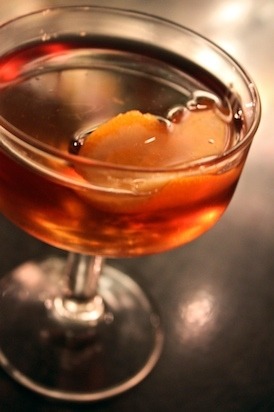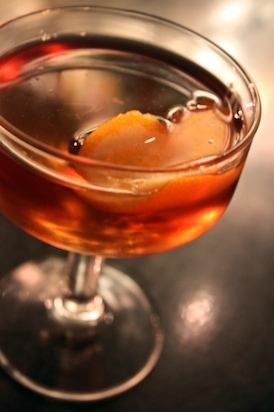The Problem With The Historical Cocktail Movement
"Historically, people don't care about the history of cocktails," remarked esteemed cocktail writer and historian David Wondrich. "So it's kind of incredible that there are 75 people here to listen to a talk on the role of history in today's cocktail culture."
The observation began what was one of the more interesting events at the recent Manhattan Cocktail Classic, a panel discussion led by some of the most prominent names in the industry. The question presented to this group was not a simple one: History, what is it good for? (Or, can you spell classic without "ass"?) "We have a natural fascination with the past — it's a very American thing to evoke the past in a bar, because we don't really have one," explained Wondrich. But have we taken the historical cocktail movement too far? The answers might surprise you.
One major symptom of this trend? A whole lot of correcting. And the reason why isn't quite so clear. As bar owner Philip Duff pointed out, "It's not a Civil War re-enactment." And yet for bartenders prescribing to this way of making cocktails, there is a definite penchant to use history as an absolute rule. It's being wielded like a password to some exclusive club — as elite and difficult to access as the speakeasy in which these bartenders are mixing their drinks. Of course that raises the question as to whose version of history you trust. "In a lot of cases you see people who find one example and use it to make a blanket statement — they're averaging the past," said Wondrich. "History is like journalism, except you don't have to check your facts," Duff chimed in.
But then Wondrich raised an interesting point: "Are we missing an opportunity to really blow people's minds?" What if, as he suggested, a bar served a simple Whiskey Toddy, exactly as it was originally conceived? Just sugar, hot water, and whiskey. Imagine the impact something like that might have on a drinker's perception and appreciation of the "historical cocktail."
Some would say another problem is that this serious, academic — did I hear someone say pretentious? — approach to cocktails is killing the recreational aspect of going to a bar. (Oh yeah, that's right. Going to a bar is supposed to be fun!) Indeed, while many us may have spent more time in bars than classrooms during college, we certainly weren't going there to get a lecture.
At the same time, there are those who see a plus side to this philosophy. They argue that it helps justify the more complicated — and oftentimes more expensive — cocktails. And beyond that, it's a natural way for bartenders to engage with their clients and provide them with a vocabulary to better appreciate the art of the drink. Maybe it's simply a cool story to share. Most of all though, it can help communicate that the bar is serious about its craft. That is to say: No Swedish Fish shots, no Jägerbombs, and no Long Island Iced Teas.
And well, hey, at least from the barstool where this cocktail enthusiast is sitting, that's not such a bad thing.

